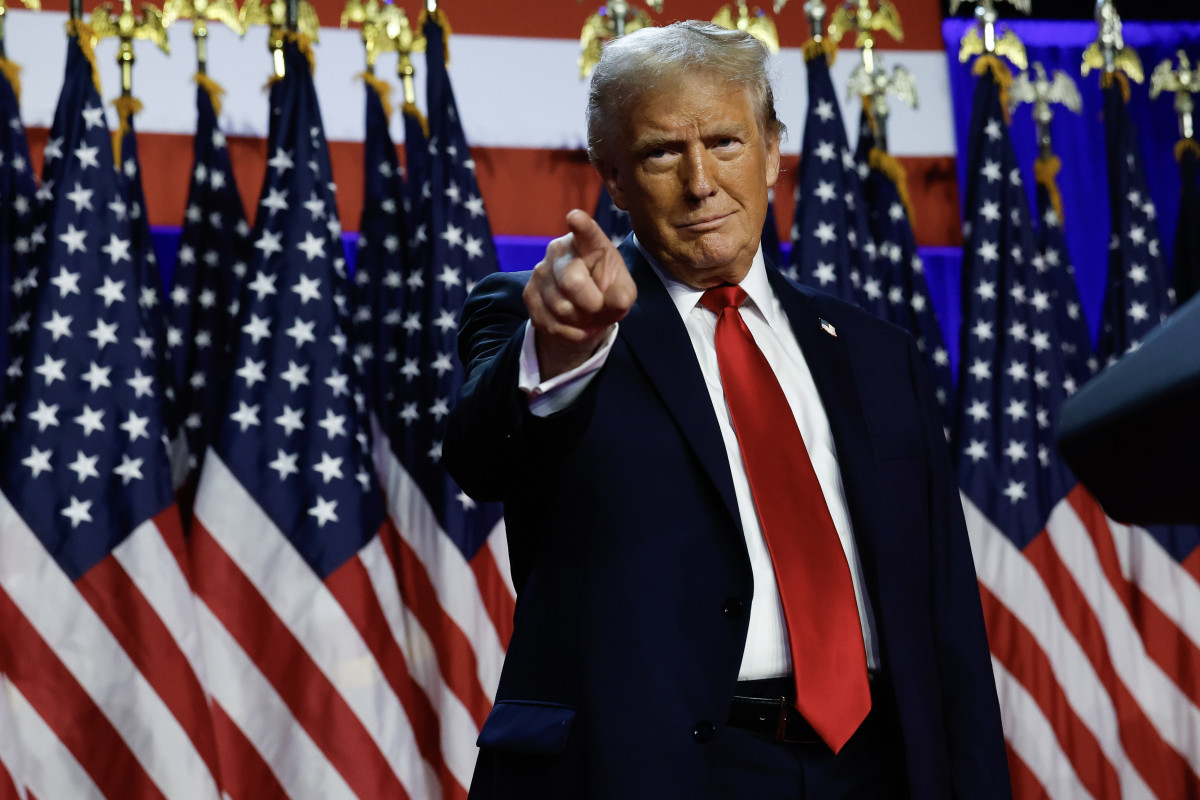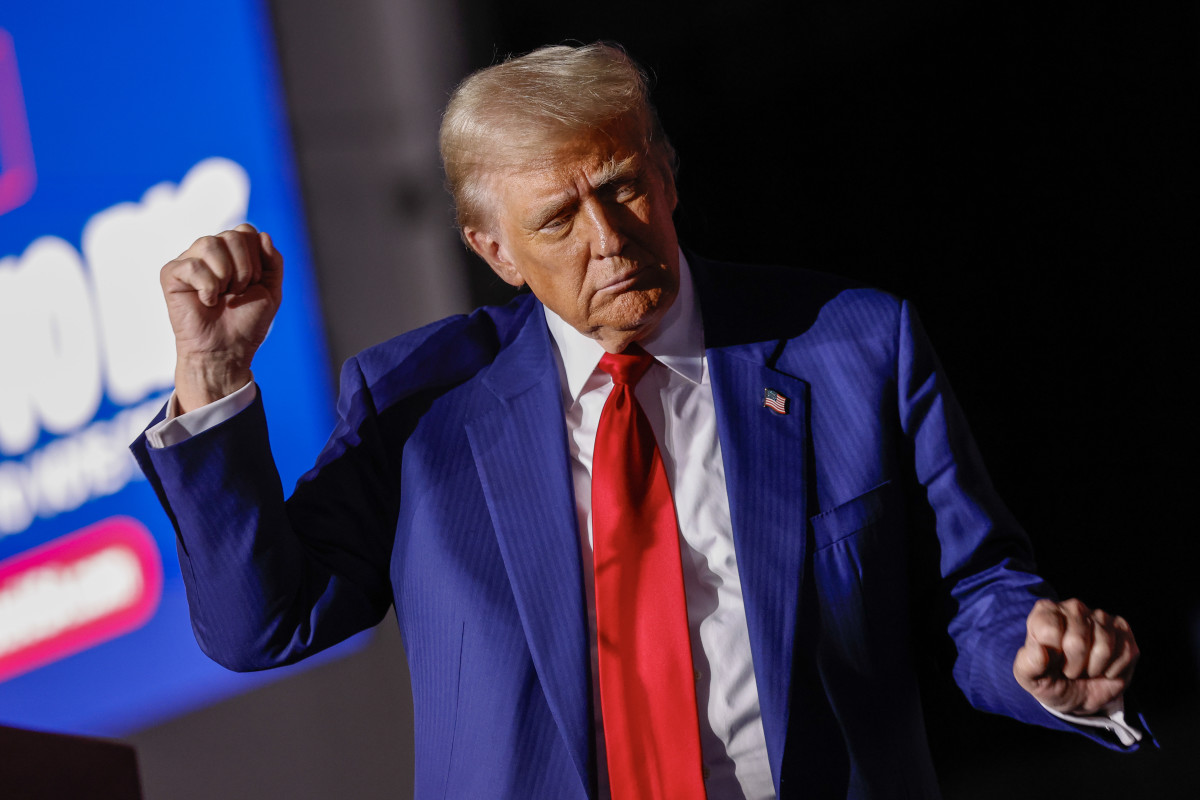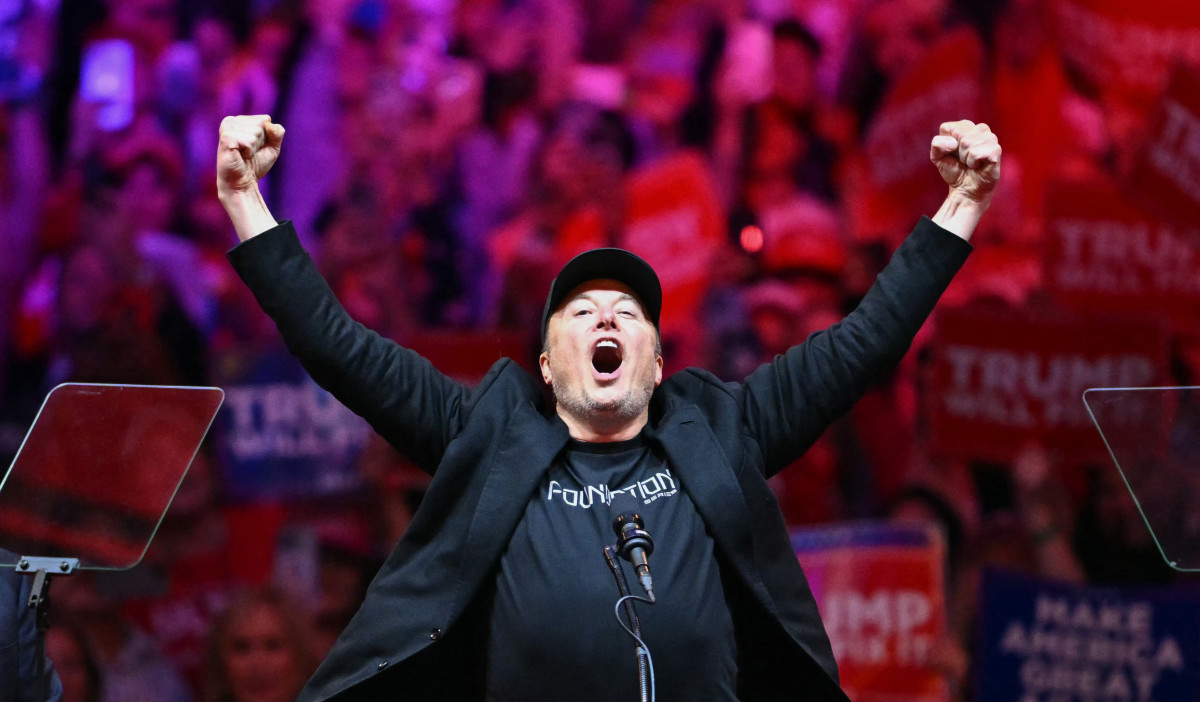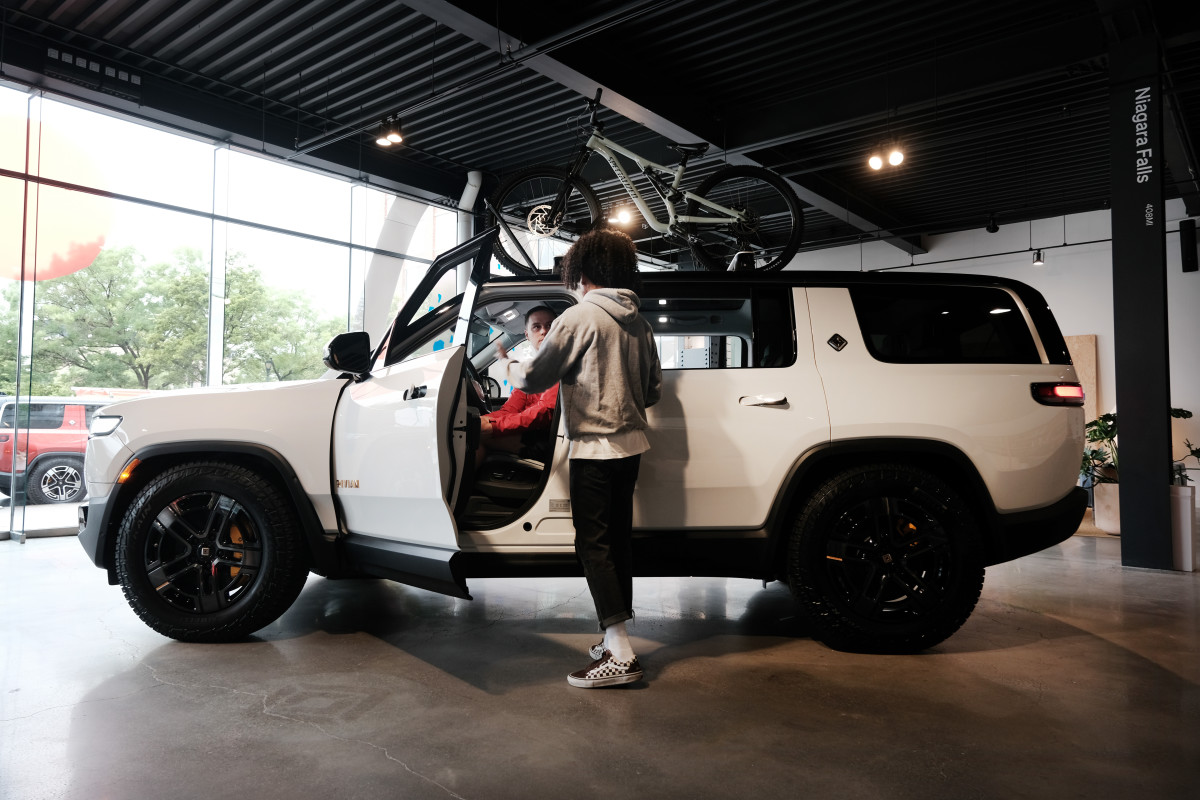
It’s another week in the auto world, and analysts have much to say after the 2024 U.S. Presidential election, which resulted in a win for former President Donald Trump and a defeat for Vice President Kamala Harris. Additionally, after it reported earnings, Bank of America analysts mulled Tesla rival Rivian.
💰💸 Don’t miss the move: SIGN UP for TheStreet’s FREE Daily newsletter 💰💸

Morningstar's post-election tale of the tape.
By now, political pundits of all flavors have offered a million and one different theories as to why former President Trump won, and Vice President Kamala Harris lost the election in national newspapers, major news networks, and on social media.
Meanwhile, automotive analysts have clear warnings about the greater automotive industry at hand and what it could look like in the very near future.
In a note published on Nov. 6, Morningstar's David Whiston noted that the firm "expect trade policy and electric vehicle tax credits" to be the main focus of Trump's second term and further expanded on the implications of his ambitious tariff policy, calling them "the worst-case trade scenario for autos."
During his first term, Trump and other North American leaders signed the United States-Mexico-Canada Agreement, or USMCA, which replaced the North America Free Trade Agreement (NAFTA) signed during the Clinton Administration.
Related: BMW CEO offers bold auto forecast after Trump's election win
But despite calling it the "best" deal that replaced what he called "the worst trade deal ever made," his messaging on the campaign trail suggests that he wants out. Either that, or he is just blissfully unaware of the deal he signed, as he is now proposing tariffs on vehicle imports from Mexico of up to as much as 200%.
"We think the worst-case trade scenario for autos is that Trump sets large tariffs on all vehicle imports into the United States, even if made in Mexico or Canada," Whiston said. "Such a tariff would especially hurt GM and Stellantis, who, through September of this year, have about 36% and 35% of their respective full-size pickup truck production in Mexico, while Ford produces all its F-Series pickups in the US. However, the Ford Maverick compact pickup is made in Mexico, and Ford said it will establish Super Duty Capacity in Canada in 2026."
Although Whiston believes that the "worst-case scenario" wouldn't happen due to the lobbying efforts of Detroit's Big Three and other auto manufacturers, even the small-scale tariffs would make even the most American-made products more expensive.
"Even if no tariff is placed on imported vehicles, tariffs instead just on parts or changes to USMCA that exclude current vehicle content from being tariff-free would likely mean higher pricing for consumers as well, so we think the Trump administration needs to be very careful with how it pursues its agenda to promote American manufacturing so that it doesn't hurt American manufacturing and American consumers in the process."
More Business of EVs:
- Cheap EVs flood Paris Motor Show. Will Americans ever see them?
- Elon Musk is sending mixed messages about Tesla’s only lifesaver
- Mercedes' new factory is the answer to a very common EV criticism

Tesla's post-election boost
However, regarding the talk about the winners and losers, one actual winner from the election, besides the former president, is Tesla (TSLA) CEO Elon Musk.
Despite parroting much of the negative messaging on social media, analysts agree that the Musk/Trump bromance is a net positive for Tesla.
Besides Trump's tariff talk, which could scare away Chinese competitors like BYD, Wedbush's Dan Ives believes that Tesla could have "a clear competitive advantage in a non-EV subsidy environment" when EV rebates and tax incentives related to the Biden administration's Inflation Reduction Act are pulled.
However, more importantly, a Trump White House could facilitate deregulation related to a key future Tesla product.
"Trump could also accelerate some of the FSD and autonomous initiatives for Tesla once he is in the White House. The autonomous fast tracking will be front and center for investors in this scenario as some of the 2026/2027 goals for Tesla could be accelerated to stay on track with the China timeline for autonomous currently underway," Ives wrote in a Nov. 8 note.
Related: Tesla expert reveals post-election scenarios for EVs and Elon Musk
"We believe a Trump win helps unlock the $1 trillion of autonomous/AI value to Tesla's stock as autonomous/FSD is likely accelerated starting in 2025 and a tailwind for Cybercab timing."
Bank of America analyst John Murphy also shares that sentiment. In a November 7 note, Murphy increased Tesla's stock price target from $265 to $350.
"It is difficult to judge how Elon Musk’s increasingly close public relationship with President Trump could benefit Tesla, but this needs to be monitored closely. We believe these factors, and potentially others, should support TSLA’s growth trajectory and thereby the higher earnings multiple," Murphy wrote.
"The Biden administration has initiated several investigations into Tesla's FSD system, and there is an expectation of less aggressive scrutiny under Trump's leadership. Elon Musk has advocated for a national standard for self-driving vehicle regulation, which the Trump administration appears willing to consider. This could facilitate the deployment of Tesla's Robotaxi service, slated for launch in 2025, which currently requires individual state approvals."

Rolling with Rivian
On the evening of Nov. 7, Rivian (RIVN) reported lower-than-expected Q3 2024 earnings numbers, including net losses of $1.1 billion and lower Q3 revenue of $874 million, a 35% drop from the $1.3 billion it reported in the same period last year.
But while it reported slower sales, it blamed its woes on a component shortage that has slowed production of its recently overhauled flagship R1S and R1T vehicles, as well as the Rivian Commercial Vans used by Amazon, essentially blaming a supplier for making it tougher to reduce its dependence on outside vendors.
Nonetheless, the problem is so serious that Rivian lowered its annual production guidance from 57,000 vehicles to 47,000 to 49,000, which has worried Bank of America's John Murphy.
In an analyst note written on Nov. 8, Murphy adjusted the price objective for Rivian stock from $20 down to $13 and its stock rating from Buy to Neutral, adding that its path to profitability is stunted.
Related: Rivian's earnings growth is being thwarted by a major speed bump
Though Murphy believes Rivian CEO RJ Scaringe that Rivian will be profitable by Q4 2024, like Tesla, it is also dependent on selling regulatory credits to automakers that do not make any or very few EVs, which may be a policy once the Trump administration does something to the Inflation Reduction Act come Inauguration Day.
"On this latter point, it could become more challenging for consumers to access IRA credits and there is potential for a disruption in regulatory credit pricing, which would put profitability further under pressure," Murphy wrote.
Additionally, Murphy pointed to the arrival of similarly priced rivals like Lucid's Gravity SUV as a threat, which may impact its growth.
“We also now expect only moderate growth in deliveries in 2025,” Murphy wrote. “This is in part as the demand environment appears more challenging and as production will be limited by downtime RIVN is taking in 2H25.”
Related: Veteran fund manager sees world of pain coming for stocks







